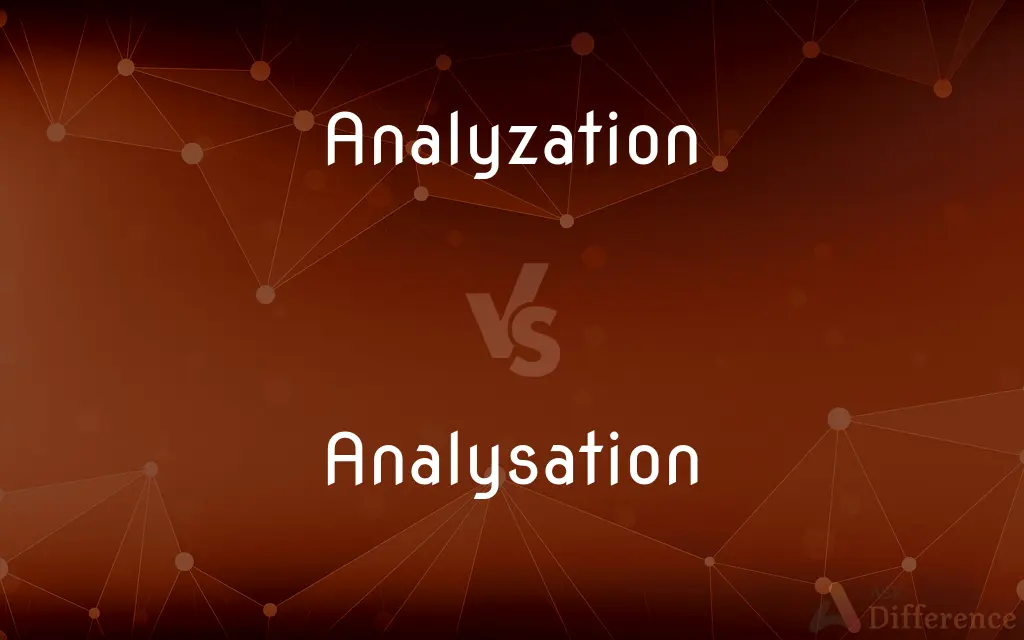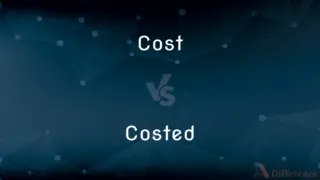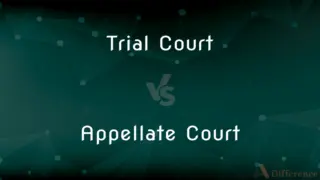Analyzation vs. Analysation — What's the Difference?
By Tayyaba Rehman & Urooj Arif — Updated on March 27, 2024
Analyzation is a less common form of the noun "analysis" in American English, whereas analysation is rarely used.

Difference Between Analyzation and Analysation
Table of Contents
ADVERTISEMENT
Key Differences
Analyzation, though occasionally seen in American English, is not the standard form; "analysis" is preferred for referring to the process of examining something in detail. Analysation, on the other hand, is even less common and is often regarded as a non-standard or incorrect form of the noun, especially in American and British English contexts.
Both terms aim to denote the act of analyzing or examining something closely. However, due to their rarity and non-standard usage, they are generally avoided in formal writing and speech. Instead, "analysis" is the widely accepted and used term across various English-speaking regions.
In academic and professional settings, "analysis" is the preferred term, reflecting a standardization of language that prioritizes clarity and precision. The use of "analyzation" or "analysation" might distract or confuse the audience due to their uncommon nature and perceived incorrectness.
The emergence of "analyzation" and "analysation" likely stems from a desire to create a noun form directly from the verb "analyze" through suffixation. However, the established noun form "analysis" (from Greek origins) already serves this purpose effectively, rendering the alternatives unnecessary.
Despite the presence of "analyzation" and "analysation" in some discussions or texts, their usage is generally considered a stylistic choice rather than a reflection of linguistic accuracy. "Analysis" remains the correct and appropriate term for the act of analyzing something in detail.
ADVERTISEMENT
Comparison Chart
Preferred Form
"Analysis" is preferred over "analyzation".
"Analysis" is preferred over "analysation".
Context of Use
Sometimes seen in informal or less edited contexts.
Even less common, might be seen in varied English uses.
Perception
Viewed as less correct than "analysis".
Generally regarded as incorrect or non-standard.
Origin
Attempt to create a noun from "analyze".
Similar attempt, but with less clarity on its formation.
Compare with Definitions
Analyzation
Less Common Usage.
His approach to analyzation is thorough but unconventional.
Analysation
Rarely Used Form.
Analysation of the survey results was not as straightforward as anticipated.
Analyzation
Informal Noun Form.
The analyzation of the data revealed new insights.
Analysation
Considered Non-standard.
The document contained several instances of the term analysation.
Analyzation
Derived from Analyze.
The process of analyzation was detailed and comprehensive.
Analysation
Linguistic Variation.
Despite its rarity, analysation appeared in his presentation.
Analyzation
To examine methodically by separating into parts and studying their interrelations.
Analysation
Uncommon in Formal Writing.
He used analysation in his report, which struck me as unusual.
Analyzation
(Chemistry) To make a chemical analysis of.
Analysation
Alternative Analysis Term.
Analysation seems out of place in academic papers.
Analyzation
(Mathematics) To make a mathematical analysis of.
Analysation
Alternative form of analyzation
Analyzation
To psychoanalyze.
Analyzation
(rare) analysis
Analyzation
The act of analyzing, or separating into constituent parts; analysis.
Analyzation
Alternative to Analysis.
She prefers the term analyzation, although it's less common.
Common Curiosities
What's the difference between analyzation and analysation?
Both are non-standard forms of "analysis", with "analyzation" being slightly more common, especially in American English.
Is there a situation where analyzation or analysation is preferred?
These terms are generally avoided in favor of "analysis", especially in professional and academic contexts.
Can I use analyzation in formal writing?
It's best to use "analysis" in formal writing due to its standardization and acceptance.
Are analyzation and analysation recognized in dictionaries?
They may appear in some dictionaries but are noted as less common or non-standard.
What should I use instead of analyzation or analysation?
"Analysis" is the correct and preferred term in virtually all contexts.
What is analyzation?
Analyzation is an uncommon and non-standard noun form of the verb "analyze", less preferred than "analysis".
Why is analysation considered non-standard?
Analysation is rarely used and often regarded as incorrect because "analysis" is the widely accepted term.
How did analyzation and analysation come into use?
They likely emerged from attempts to noun-ify the verb "analyze" through suffixation, despite the existence of "analysis".
How can I avoid using analyzation or analysation?
Familiarize yourself with "analysis" and its correct usage in various contexts.
Do analyzation and analysation have different meanings?
No, they aim to convey the same concept as "analysis" but are considered non-standard.
Is it incorrect to use analyzation or analysation?
While not technically incorrect, their usage is discouraged in favor of the standard term "analysis".
Are there any contexts where analyzation or analysation is acceptable?
They might be encountered in informal contexts or creative writing but are generally avoided in formal usage.
What is the most important thing to remember about using analyzation and analysation?
Remember that "analysis" is the preferred and standard term for the act of analyzing something in detail.
How can I correctly use the term "analysis"?
Use "analysis" to refer to the detailed examination or process of analyzing something.
Will using analyzation or analysation affect my writing's credibility?
Potentially, as their use might be viewed as unconventional or incorrect by some audiences.
Share Your Discovery

Previous Comparison
Cost vs. Costed
Next Comparison
Razzberry vs. RaspberryAuthor Spotlight
Written by
Tayyaba RehmanTayyaba Rehman is a distinguished writer, currently serving as a primary contributor to askdifference.com. As a researcher in semantics and etymology, Tayyaba's passion for the complexity of languages and their distinctions has found a perfect home on the platform. Tayyaba delves into the intricacies of language, distinguishing between commonly confused words and phrases, thereby providing clarity for readers worldwide.
Co-written by
Urooj ArifUrooj is a skilled content writer at Ask Difference, known for her exceptional ability to simplify complex topics into engaging and informative content. With a passion for research and a flair for clear, concise writing, she consistently delivers articles that resonate with our diverse audience.
















































